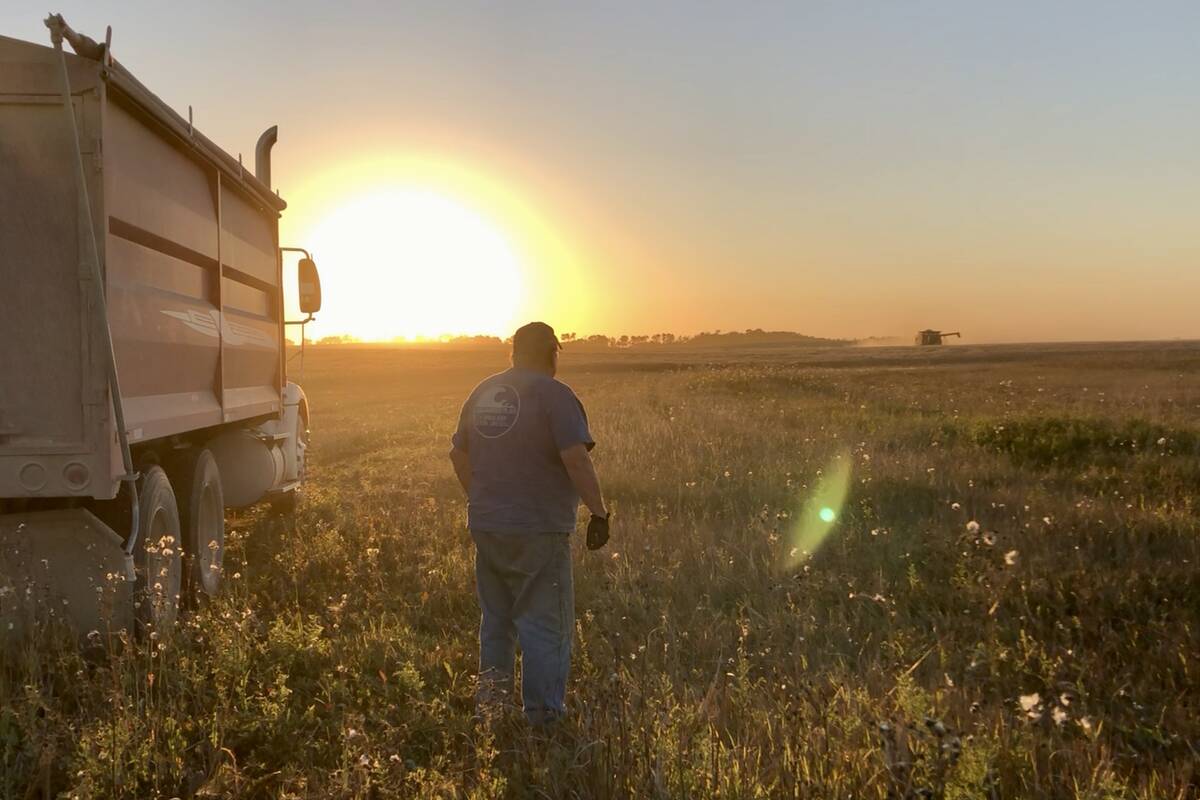Q: The land next to mine borders on a small lake. There is a spot on
this land that is often a gathering place for parties and bonfires. To
get to this spot, people drive along a path on the land. The owner of
the land lives in a distant city. A tenant farms the land but lives
elsewhere.
Sometimes, I can hear the noise from the spot; other times smoke wafts
over our farmstead. I am also concerned, especially in this dry year,
Read Also

VIDEO: Bittersweet harvest for this family farmhand
Bruce Burnett helps his brother harvest wheat and canola for the last time on the family farm in Manitoba where they both grew up.
about a fire running out of control. Unfortunately, we do not have a
police detachment close by. What are my rights in this kind of
situation?
A: In answering this I’m going to assume that the revelers are
trespassers and have not been invited by either the owner or the tenant.
As a start, I would contact the owner and the tenant and outline your
concerns. Detail the kinds of activities that have been taking place.
Hopefully, the landlord, tenant or both, will then take action.
Division of responsibility between the landlord and tenant would depend
on the terms of their lease. There are a number of measures they could
take to make it more difficult for trespassers to access the property.
That can include signs, fencing and other barriers to deny easy access
to the land. Given your concerns, perhaps you could even help in this
situation.
Are the landlord and tenant responsible for the noise, smoke or a fire
that gets out of control? As a general rule, we are not responsible for
the actions of strangers on our land. However, the situation might be
different if we know that trespassers are frequenting our land to hold
parties, bonfires and carry out other activities. While we may not have
expressly agreed to their presence, if we are aware that individuals
are using our land and take no action to prevent their presence, we may
indeed be liable. This is the kind of question that a law teacher would
put students to work on.
In my search of previous cases, I haven’t found one dealing with this
kind of situation. If, on the other hand, the revelers were given
permission to be on the land, then there is a much stronger case that
the landowner or tenant is liable.
You should also discuss this with the police. While it would be
impossible for the police to station a patrol at all times in the
vicinity, perhaps they could increase the frequency of their patrols.
It may also be useful to discuss your concerns with the local
councillor since municipalities do have the power to deal with a
variety of issues including noise and fires. In this dry year, there
may also be a ban on open fires in your area.
Both Alberta and Manitoba have petty trespass acts. In Alberta, anyone
trespassing on land on which there is a no trespassing sign or anyone
who has been advised not to trespass and does so, is guilty of an
offence with a maximum fine of $100.
Prosecutions can only be instigated at the request of the owner or
occupant. In Manitoba, anyone trespassing on a wholly enclosed area or
on land that they have been asked to leave is guilty of an offence and
subject to a maximum fine of $25. In both Manitoba and Alberta, a
landowner or person who occupies the land can apprehend a trespasser
and bring them to a justice of the peace. Personally, I don’t advise
self-help since the possibility for violence always exists. It is
better to call the police.
Saskatchewan does not have such an act. In addition, in all provinces
trespassers can be sued for all damage they cause.
Don Purich is a former practising lawyer who is now involved in
publishing, teaching and writing about legal issues. His columns are
intended as general advice only. Individuals are encouraged to seek
other opinions and/or personal counsel when dealing with legal matters.
















